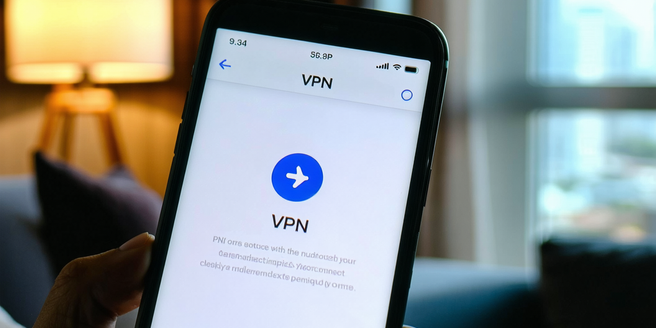Vpns For Secure Remote Connections

Understanding the Basics of VPN Technology
Virtual Private Networks (VPNs) are crucial for secure online activities. By encrypting your internet connection, a VPN masks your IP address, ensuring that your online actions are virtually untraceable. This is achieved by routing your internet traffic through a secure server hosted by the VPN provider. It’s like creating a private tunnel over the open internet, protecting sensitive data from prying eyes. VPNs are particularly valuable for remote workers who often handle confidential information over unsecured networks. Additionally, VPNs help in bypassing geo-restrictions, allowing access to content otherwise blocked in certain regions. Understanding VPN protocols like OpenVPN, L2TP/IPsec, and the latest WireGuard is essential. Each protocol offers varying levels of security, speed, and compatibility. This foundational knowledge helps users make informed decisions when selecting and configuring a VPN service.
Key Features to Look for in a VPN
When choosing a VPN, it’s essential to consider several features to ensure robust security and performance. First, verify the encryption standards, ideally AES-256, which provide high-level data protection. The choice of protocol also matters; OpenVPN and WireGuard are known for their security and speed. A strict no-logs policy is crucial, ensuring that your online activities aren’t recorded. Consider the number of available servers and their locations, as this influences connection speed and access to global content. VPNs with a kill switch feature protect your data by disconnecting the internet if the VPN connection drops. Additionally, check for DNS leak protection to ensure that requests remain inside the encrypted tunnel. Compatibility across devices and user-friendly interfaces can significantly enhance your VPN experience.
How VPNs Enhance Remote Work Security
VPNs are indispensable in enhancing remote work security, particularly when accessing sensitive data over potentially unsecured networks. By encrypting internet traffic, VPNs ensure that information exchanged between remote workers and company servers remains private and secure from cyber threats. This encryption makes it virtually impossible for hackers to intercept or decipher the transmitted data. Furthermore, VPNs enable secure access to internal networks, providing remote workers with a seamless experience as if they were working onsite. They also prevent unauthorized access by using strong authentication mechanisms, adding another layer of security. As remote work becomes the norm, companies must prioritize implementing VPN solutions to safeguard against vulnerabilities associated with distributed workforces. Overall, VPNs provide the essential security infrastructure that supports the confidentiality, integrity, and availability of business resources in a remote setup.
Top VPN Providers for Secure Connections
Choosing the right VPN provider is critical for ensuring secure online connections. Several top providers have established themselves as reliable solutions in the market. NordVPN is highly regarded for its robust security features, including AES-256 encryption and an expansive network of servers worldwide. ExpressVPN is another leading option, known for its exceptional speed and privacy-focused policies. It offers support for a wide range of devices, making it ideal for users needing versatile protection. CyberGhost provides user-friendly interfaces, ideal for VPN newcomers, while still delivering strong security protocols. Surfshark is praised for its affordability without compromising on features like a strict no-logs policy and unlimited device connections. Each provider offers unique strengths, so consider your specific needs, such as streaming or torrenting capabilities, when selecting a VPN to fit your requirements.
Setting Up Your VPN for Optimal Performance
To maximize your VPN’s performance, start by choosing the right server location. Opt for a server geographically close to your actual location to ensure faster speeds. Configure the VPN to use lightweight protocols like WireGuard, which offers a good balance of speed and security. Regularly check for software updates to keep your VPN client equipped with the latest security patches and performance improvements. Utilize a wired connection when possible, as Wi-Fi can introduce latency and reduce speed. Checking for any software or firewall settings that might interfere with the VPN connection is also crucial. Additionally, disable bandwidth-heavy applications running in the background when using a VPN. Fine-tuning these settings can help optimize your VPN for both security and speed, ensuring a smooth and secure online experience.